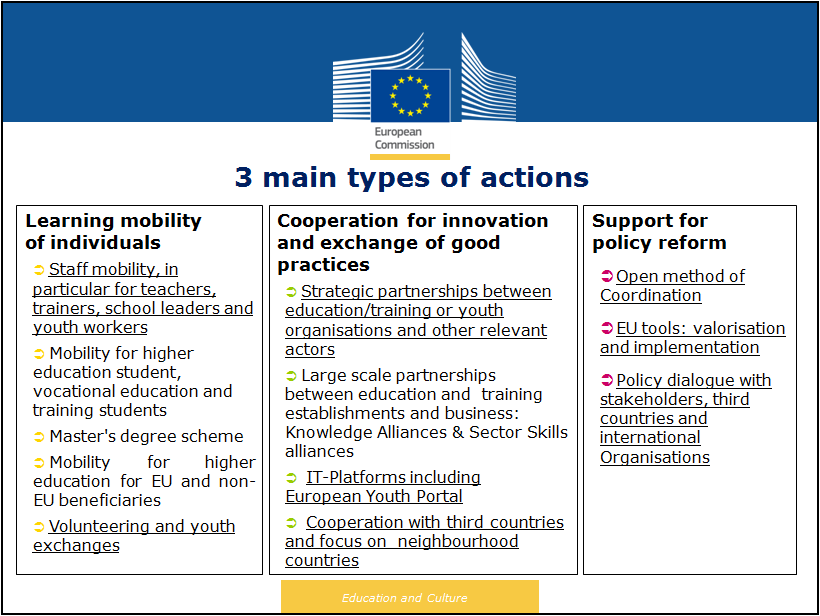
Erasmus+ is a broad programme financed by the European Commission, in this course we focus on the Youth section of the programme, meaning opportunities related to education for young people and youth workers.
Follow the money!
The grant established by the European commission for the programme is shared among the National Agency of EU member countries according to the population of the country. The National Agencies, then, have open calls for non-profit organisations that can apply with projects. If a project get granted, the organisation can start the implementation of the activities. And that’s when young people or youth workers (according to the type of project) get involved!
Different types of projects:
Even if you probably don’t need to know a lot about fundings and other bureaucratic aspects of the programme, it’s important to understand that there are three categories of projects:
- Key Action 1: These types of projects are the most popular, because they involve young people directly. Among the KA1 projects we have:
- Mobilities for young people (better known as youth exchanges)
- Mobilities for youth workers (training courses, seminars…)
- Youth participation activities
- Key Action 2: KA2 projects are related to the life of the non-profit organisations, and they are aimed to increase the quality of the work of those NGOs. Among the KA2 projects we have:
- Cooperation partnerships
- Capacity building
- Key Action 3: Those projects are the least known, they are related to support the policy development.